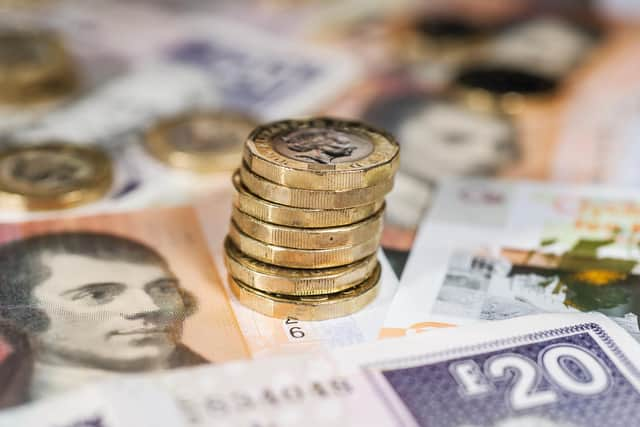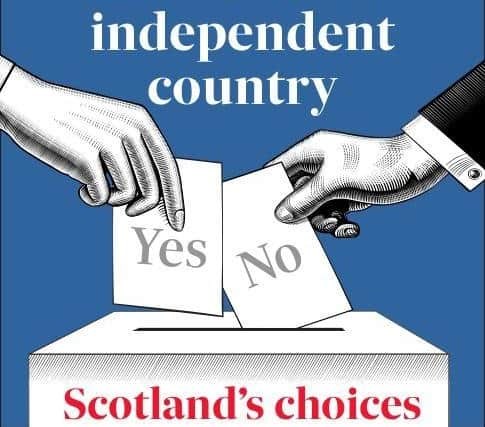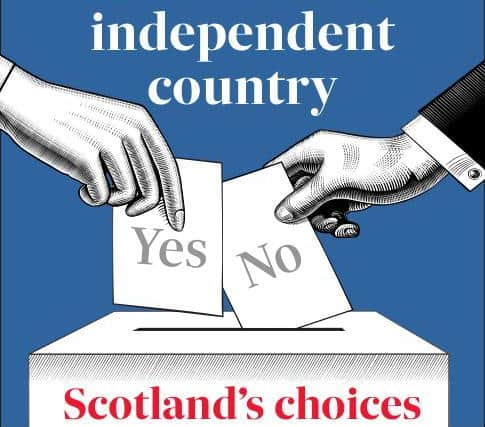How would a common currency work post-Scottish independence?
This article contains affiliate links. We may earn a small commission on items purchased through this article, but that does not affect our editorial judgement.
Jan Fidrmuc, professor of economics at the Universite de Lille, added that Scotland may also choose to have its own currency in order to later join the Eurozone more easily.
The academic made the comments while speaking to The Scotsman’s new limited podcast series, How to be an independent country: Scotland's Choices.
Advertisement
Hide AdAdvertisement
Hide AdThe podcast is looking at how other countries have experienced independence and what lessons there might be for Scotland, with the third episode focusing on the potential for a Scottish currency and other economic factors.
It has previously examined the question of the England/Scotland borders and what sort of democracy the country may have.
Professor Fidrmuc, who also described what happened when the Czech Republic and Slovakia attempted to maintain a common currency after Czechoslovakia’s split, said the success of a monetary union “can really go either way”.
He said: “If the rest of the UK wants to maintain close economic ties with Scotland and if Scotland wants to maintain close economic ties with the rest of the UK then they will do everything in their power to achieve that.
“In as much as this is credible, the markets will behave accordingly.


"This was the problem in the former Czechoslovakia, the two sides of political representations made public pronouncements about intending to maintain close economic ties but this was not credible because they were also making political pronouncements which were not really in line with the two parts maintaining close and friendly relations after the break-up.”
He added: “It really depends what kind of political compromise is maintained between the two sides and to what extent the two sides credibly demonstrate commitment to maintaining close economic ties after separation.”
For Scotland, the hope of rejoining the European Union after independence complicates matters.
Advertisement
Hide AdAdvertisement
Hide AdProfessor Fidrmuc said: “It’s possible that the EU might decide to make this [rejoining] relatively easy for Scotland if for no other reason than to punish the rest of the UK.


"But then Scotland rejoining the EU would probably not be consistent with Scotland remaining in a monetary union with the UK.
"In principle they could, there is nothing in the rules I think that would make this impossible, but it is less likely that this would turn out to be the solution.
"In that case Scotland might want to have their own currency in order to switch to the Euro at some point in the future after independence.”
Also in the podcast, Eoin McLaughlin, senior lecturer in economics at University College Cork, said the people who benefit financially from independence may not be those most in favour of the political project.


Citing the experience of Ireland where unskilled workers were more likely to want independence over the more Protestant and unionist middle class, the academic said it was the latter who took advantage of lower income tax and higher indirect taxation.
He said: “They [unskilled workers] were the people who would be paying the increases in indirect taxation, whereas the middle class who would have been Protestant/unionist in outlook, they are the ones who would have been the income tax payers, but they get a tax break.
"So who actually benefitted from independence were the minority who didn’t support it.”
The third episode of the brand new limited series podcast, How to be an independent country: Scotland’s Choices, is out now.
It is available wherever you get your podcasts, including Apple Podcasts and Spotify.
Comments
Want to join the conversation? Please or to comment on this article.
